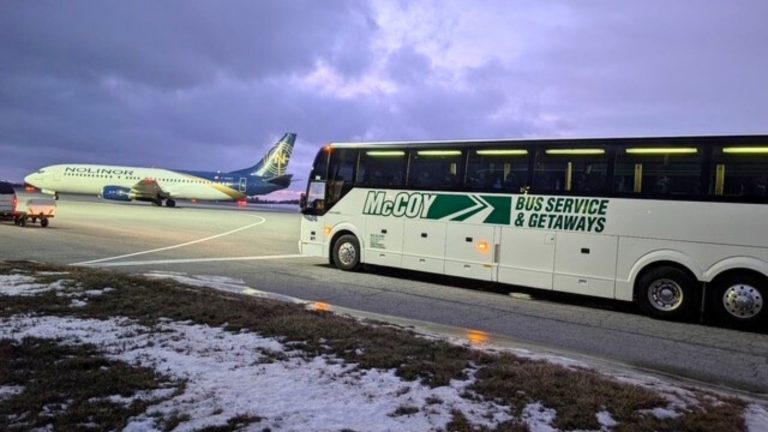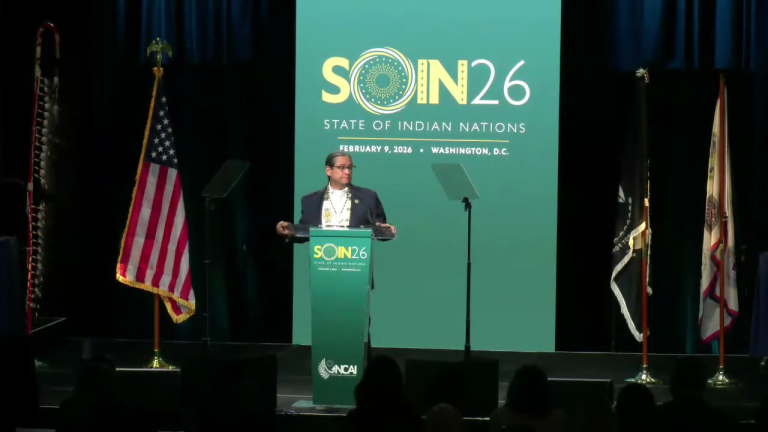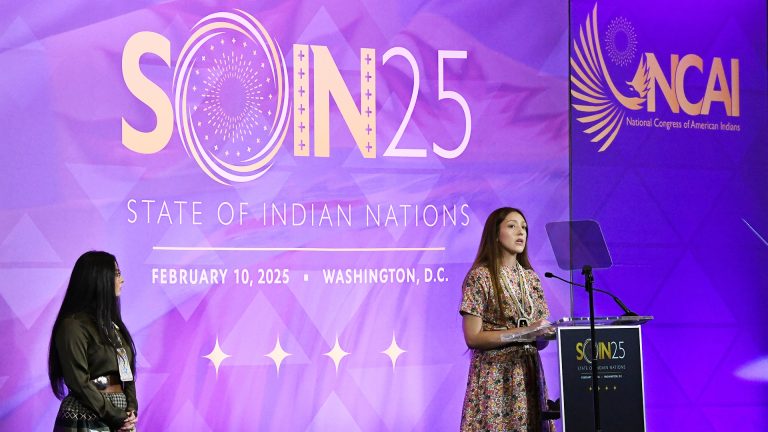Despite legal setbacks leading up to the 2018 midterm elections in North Dakota, tribes and voting rights advocates still have hope they can overturn a state voter I.D. law. The courts have yet to decide on the merits of the two legal challenges to the law that the advocates maintain continues to threaten voting accessibility for thousands of tribal members in the state.

Terry Yellow Fat outside his home in Fort Yates, North Dakota. He’s lived in the same place for decades, but confusion over his address threatened his ability to vote (Photo: Christine Trudeau)
The car in front of Standing Rock Sioux tribal member Terry Yellow Fat’s house is the only quiet place he can find to conduct an interview that offers shelter on a cold and windy Sunday afternoon.
“Yeah, I got a house full,” Yellow Fat said. “She cooked up a special dinner, so she invited a bunch of people: menudo.”
Yellow Fat, a retired school teacher, has lived in this house in Fort Yates, North Dakota for decades. Most of those years he’s used a Post Office box as his primary address. That is until recently, when his tribe issued him a street address for emergency response purposes. But that address didn’t line up with what election officials had on file when he went to the polls.
“The address that when I look it up that they’re using now belongs to the local liquor store bar,” Yellow Fat said. “I was upset with that because I never drink in my life, and here I am, I’m listed as a liquor store.”
The experience prompted Yellow Fat to join a lawsuit with the Spirit Lake Tribe saying the North Dakota law requiring a physical address in order to cast a ballot infringes on their constitutional right to vote. The Standing Rock Sioux Tribe and a handful of individuals are now also part of the suit.
Jacqueline De Leon, an attorney from the Native American Rights Fund, said even though the Supreme Court would not block the law before the last election, the disproportionate harm to many other Native voters, like Yellow Fat, remains clear.
“We still know that there are hundreds of people… potentially thousands of people out there that that still don’t have an I.D.,” De Leon said. “So you know there was a tremendous push this election but we don’t know–and are skeptical–that if the law remains on the books people will have I.D. going forward in the future.”
North Dakota is the only state without voter registration, and proponents of the physical address law say it helps prevent the potential for voter fraud, despite the limited number of credible voter fraud cases in the state. De Leon said the surprisingly large Native voter turnout last November was fortunate. But in the end, voters deserve a permanent solution to laws that erect barriers to their basic constitutional right, which is why NARF is continuing their legal challenges.
“Everybody was incredibly fired up about turnout, and the consequence was that the tribes ended up issuing hundreds of new ideas to prospective voters,” De Leon said. “There were lines out the door. There were extended hours and it just showed how many people did not have an I.D. going into the election.”
De Leon said NARF is confident in their suit moving forward. And Terry Yellow Fat said he remains vigilant for any barriers that might arise for the 2020 election..
“We’ve got to do something. Yeah, I feel that I am going to step forward again even if it takes another court case,” he said.
This story is a joint project with National Native News, Prairie Public Broadcasting and Solutions Journalism Network looking into how a potential setback for tribal members in North Dakota turned into a win for tribes, voters and Native candidates.



